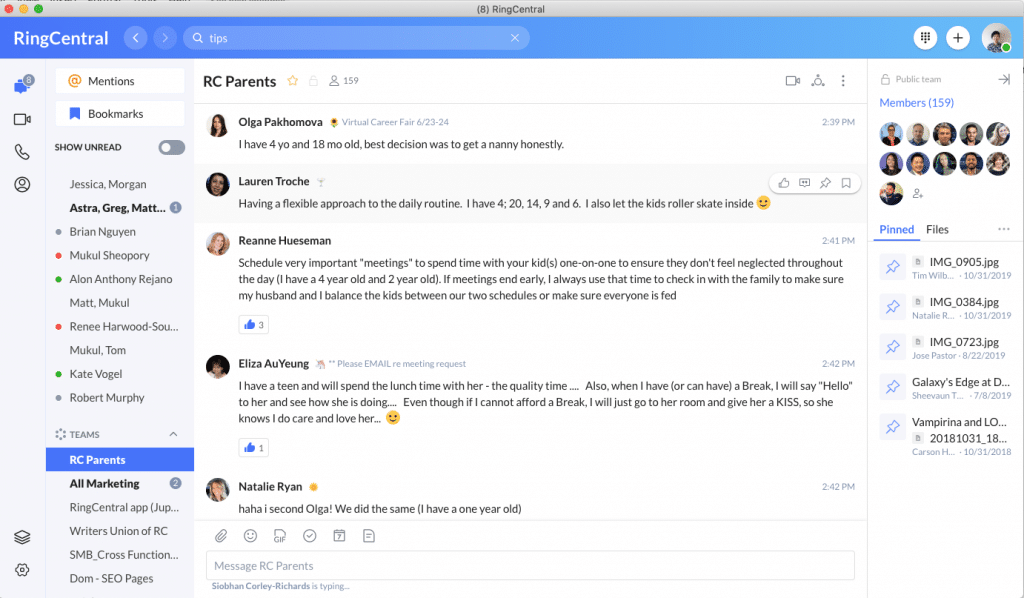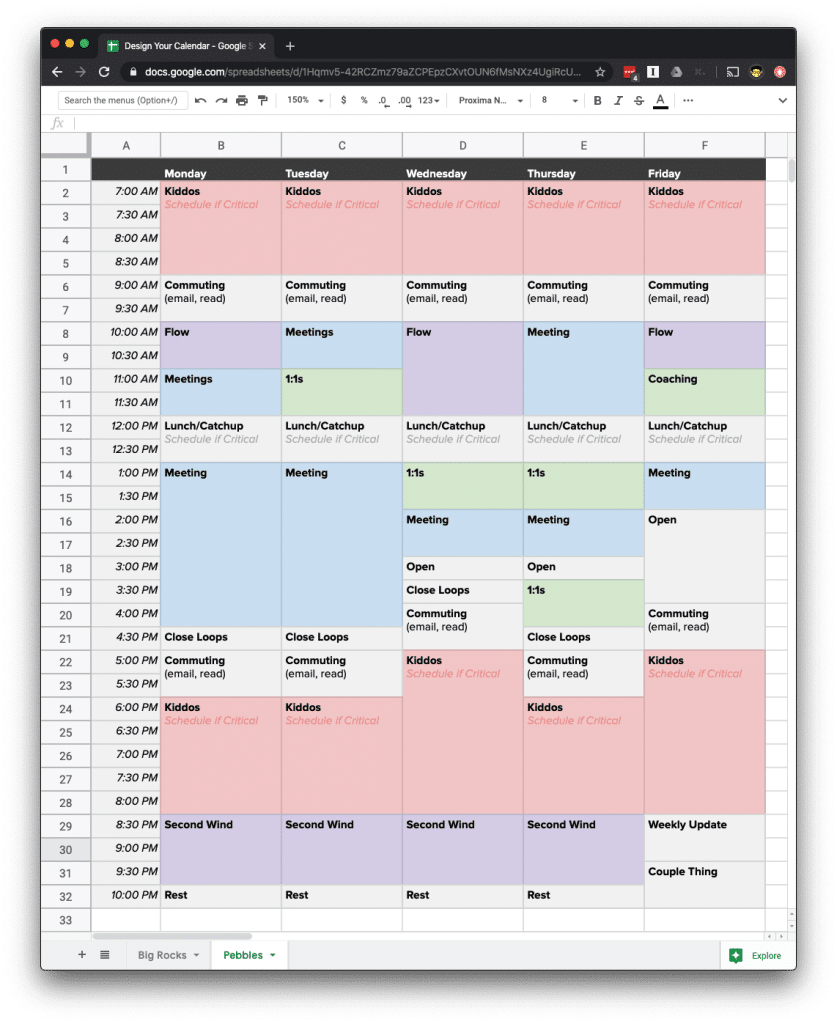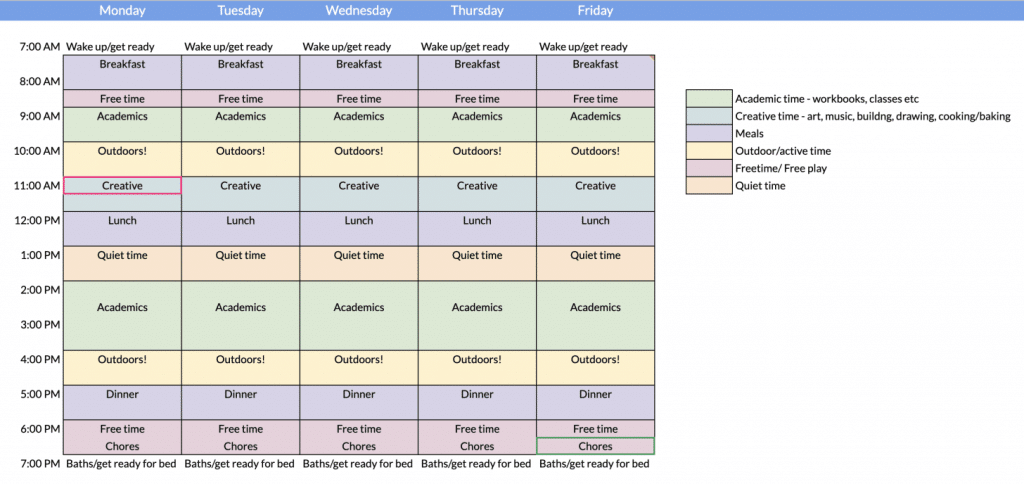As if living with the fear of an invisible killer microorganism on the loose wasn’t enough, the whole world as we know it is upheaving, hurtling rapidly towards what seems to be the apocalypse: disease, war, locusts, and 7th grade math homework.
Few parents around the world fully appreciated just how much of childcare is typically outsourced until the coronavirus broke out and schools closed.
Even without babysitters, nannies, and helpful family members, school occupies kids for almost a third of the day. And then you have playdates, tutoring sessions, and after-school activities.
So, along with talking through work-from-anywhere strategies and tools, we turned to RingCentral’s own parents who have been working from home for the past few months. Some of them have newborns, others have toddlers, and still more have teenagers.
They’ve shared some solid, actionable advice for how they’re acing this juggle, and in this article, we’ll cover:
- What’s worked for the RingCentral team
- 5 tips for working from home with a baby or a young child
- Managing your own productivity while working from home with children
- Tools you need if you’ve got younger children
What’s worked for the RingCentral team’s parents
One of the great things about the RingCentral app is that our whole team uses it every day for virtual team building activities like video conference calls and phone calls, and sending each other messages.
We also have lots of group conversations, some categorized by departments and specific projects of course, and some categorized by more fun things (like sports!) and hobbies.
So, to gather WFH + parenting tips from the (many) parents on the RingCentral team, why not turn to our RC Parents group?

Yes, we’ve got an incredible 159 parents in our “RC Parents” team chat.
“Jennie (my wife) and I sync our calendars ahead of time (Sundays or the day prior) so one of us can cover in case Kinsey, our baby, wakes up or gets hungry.” – Brian Nguyen, Sr. Digital Marketing Manager
“I came from a very intense environment. My husband and I wake up between 3am and 4am to do uninterrupted work, and then review important meetings throughout the day and have a rotating schedule all day.” – Alison Cubre, Senior Employment Attorney
“I have a 4-year-old and an 18-month-old, best decision was to get a nanny honestly. We also established “shifts” with my husband, based on our work specifics. I cover first part of the day and he covers second part. We post a written schedule of the day in the kitchen and try to plan fun activities a week ahead, so we can get materials ready for arts & crafts etc.” – Olga Pakhomova, HR Business Partner
“Having a flexible approach to the daily routine! I have 4 kids: 20, 14, 9 and 6. I also let the kids roller skate inside :).” – Lauren Troche, Sr. Contract Manager
“Schedule very important “meetings” to spend time with your kid(s) one-on-one to ensure they don’t feel neglected throughout the day (I have a 4 year old and 2 year old). If meetings end early, I always use that time to check in with the family to make sure my husband and I balance the kids between our two schedules or make sure everyone is fed.” – Reanne Hueseman, Manager of CS – ACO
“I have a teen and will spend the lunch time with her for some quality time. Also, when I have (or can have) a break, I will say “Hello” to her and see how she is doing. Even if I can’t always afford a break, I will just go to her room and give her a kiss, so she knows I do care and love her…” – Eliza AuYeung, Executive Assistant
“I wish I could’ve got my kids starting at age 8. So much easier when you just have to manage… no more “Go to your room”, now it’s “Please come out of your room.” – Paul Comaroto, Senior Manager, Marketing Strategy & Operations
“My daughter (5) and son (2) have learned how to play well together, problem is it’s always on my virtual meetings!” – Tim Wilbourn, AVP Critical Account Program
“In the early days, we had to split the childcare and work right down the middle, otherwise burnout is real! We did two hours with kids, two hours work and juggled it through the day like that.. didn’t stop them barging into our shed office during my work time (funnily enough Daddy never got disturbed!) but it allowed us to have some kind of work-life balance! We ended up working late in the evening too and then Netflix got the better of me so late nights were the norm!” – Siobhan Corley-Richards, Senior Web Content Strategist
5 tips for working from home with a baby (or young child)
When thrown into an entirely new and unexpected situation, impulse often overpowers strategy. Many parents operate on summer-vacation mode, over-relying on their tablets to keep their kids occupied or letting routines slip up. But that quickly becomes (like many family vacations) a recipe for disaster when boredom and overwhelming emotions set in.
Without the usual tools and resources available to keep kids mentally stimulated and able to cope with change, parents are stretched thin. You’ve got to fill in for playtime, extracurricular activities, and a social life with friends—all these things add color and richness to a child’s life. They are as lost without these things as you are. How can you dream of substituting all this with your overworked and frazzled self alone?
Here are a few tips:
1. Stick to your routines
What did your children’s typical day look like before schools closed? Did they have unstructured playtime, reading hours, and soccer practice? How many times a week and for how long? Try adapting these activities to the current circumstances.
For instance, if your children go for soccer practice for a few hours each week, see if you can make a soccer field in your own yard and get them to sharpen their drills. If your child normally goes for piano lessons, see if their teacher will conduct lessons via video conferencing software. (Like the RingCentral app!) Even better, sign them up for the loads of activity and craft classes mushrooming online.
2. Make friends with scheduling
In an unpredictable world, schedules can offer a welcome piece of structure and predictability. Get in the habit of scheduling everything and loop your co-caretakers in. Use any calendar, or task or workflow management tool you’re comfortable with—this process needn’t be too high tech (it can even be a simple timetable on a whiteboard).
If your children are old enough to use smartphones, mark them on tasks as well. Here are a few tips to make the most out of scheduling:
1. Try the Rocks, Pebbles, and Sand method
The Rocks, Pebbles, and Sand method1 draws upon the analogy of trying to fill up a jar with—you guessed it—rocks, pebbles and sand. If you want to get all three things into a jar, you place the large rocks first, and the pebbles and sand grains fall in place around them. Think of your projects and priorities in this manner.

In techie Kevin Yien’s calendar2, his rocks are family time and deep work. The pebbles are things like meetings, 1:1s, and unplanned, ad-hoc meetings and chats fall into the cracks. (Here’s a handy guide on how to have better meetings.)
Your priorities during the pandemic might look different. The rocks might be essential domestic duties like cooking and homework help. Bear in mind that since times are different now, you won’t be able to fit everything. A little compromise and putting less important things off for another time is required here.
Send autoresponses to meeting requests and emails (here’s how to avoid email overload) that fall into time you’ve blocked out for family and household work. Use the Do Not Disturb feature on the RingCentral app so you’re not swarmed by notifications while you’re trying to switch off from work.
2. Discuss the week’s schedule in advance
Pick a day to sit down with your family and slot in your children’s weekly activities. If you have a partner or another family member pitching in with childcare duties, decide who’s supervising what in advance, so there are no surprises. Let everyone know when you have ultra-important RingCentral meetings so that there’s no unwelcome video-bombing.
The little things eventually add up, so slot everything in, from laundry to a quick five-minute phone call.
3. Make sure you leave plenty of buffer time
To sleep easy, block out your time in half-hour chunks. To sleep even easier, have a buffer of 10–15 minutes between activities to give yourself breathing room for when commitments and tasks spill over into one another.
3. Give your children chores to do
It’s never too early to get your children to learn their way around household chores.
Are your children old enough to dust and wipe down surfaces? Give them easy-to-handle tasks like putting away their own toys, walking the dogs, or simply cleaning their own plates after mealtimes. Aside from taking the load off the adults in the house, there are loads of important lessons to learn.
According to Jennifer Keys Adair, a professor of early childhood education at UT Austin, “Young children will learn much more about math and science by helping their families cook, measure, build, or re-organize than they will learn online.”
4. Plan self-directed learning and creative projects
If there’s one life skill young children need for the future, it’s the ability to cope with more “unprecedented” crises and “new normals.” Painting and craft projects are great hobbies and creative pursuits can be extremely therapeutic. Puzzles, LEGO sets, and DIY craft projects are easy and safe for children to play with supervision-free.
5. Mold your children’s ability to self-entertain
Wouldn’t it be great if you could have a video meeting with your boss with the door open, without the fear of your children tumbling in with tantrums? It’s a good idea to teach your children to be able to occupy themselves and remain calm when you need them to be.
To build this up, follow the 15-45 rule. Here it is, explained by experts at the College of Education at the University of Texas: give your full attention to young children for 15 minutes and then give them an activity or an online lesson or video to keep them busy so that you can work or complete other responsibilities for 45 minutes.3
Managing your own productivity while WFH with children
Right off the bat, you’ll need to do the hard work of coming to terms with the fact that you can’t do it all perfectly. People have been raising children without the internet or regular modern schools and daycare for centuries. But their world of work was very different from yours.
It isn’t easy coping with remote work (it requires a whole new skillset) and parenting is a full-time job. You will have days that leave you drained, and you will end up making a blunder or two—but don’t be too hard on yourself (or your partner). Apart from that, here’re a few tips to make the work-home juggle a little easier on you.
1. Take a few things off your plate
Remote workers frequently end up working longer hours than on-site employees. If you’ve been working remotely for a while, you’ve probably contended with the fears of being “out of sight, out of mind” for promotions and being seen as a less dedicated employee. These fears add the pressure to want to “compensate” by taking on more work or being available around the clock. There’s nothing wrong with that, except that you will surely burn out.
A more sustainable action plan would involve frank, honest discussions with your manager to review your workload, or any time commitments that are unsustainable, for instance, late-night meetings with colleagues in different time zones. Just remember, this pandemic is not a sprint; it’s a marathon.
2. Block out your most productive hours
With children, you’ll inevitably have to plan around naptimes and the availability of your partner. A 9-to-5 might not be the ideal routine for you. Instead your workday could look more like a 6-to-10 and 4-to-8. Once you know these times, safeguard them. Close your door, hang a “Do Not Disturb” sign (why not get your child to paint it?), or move to the basement.
3. Be open with your colleagues about your situation
Everyone is going through an extremely difficult time at the moment, and many of your colleagues probably can relate to your predicament. There is no shame in asking a coworker to reschedule a call so it can fall in your toddler’s nap time or being frank with your boss that your baby will be contributing to the ambient noise of your morning check-in call.
If you are in charge of a remote team, you might want to explore having frank conversations with your employees about managing parenting and work, and be prepared to offer more understanding and empathy during this difficult period.
At social media software company Buffer, it’s not only tolerated, but even taken in good humor when children sometimes tumble into meetings and video calls.4
Must-have tools for WFH parents with young children
No, these aren’t remote working tools (though those would come in handy too). Here are some basics specifically for parents.
1. A calendar
Have three calendars/timetables at hand: yours, your children’s, and your co-caretaker. You can even use an Excel sheet to build and customize your own.
2. Plenty of books, toys, and games
Your children’s education needn’t stop because schools are closed and outdoor enrichment opportunities are limited. In teaching your children to take care of their own entertainment using the 15-45 rule, you will need to provide them with options and tools. These books, toys, and games also need to be more interesting than your smartphone or tablet.
3. A baby monitor
You’ve just put the baby to bed, and your phone is ringing. You want to watch the child, but don’t want to disturb her. Even if you’re working from home, a baby monitor can be a welcome stop-gap especially for those blocks where neither you nor your co-caretaker is completely available or present.
Looking past sanity and productivity for parents working from home
It can feel frustrating to care for your children without support. The prospect of working with the television screaming in the background as the toddler trips over the dog can seem harrowing, but if you look past the tantrums and the drama, you might find that what you have before you is an opportunity—the chance to spend every waking hour with your children and to never have to worry about missing a “moment.”
You don’t want to look back at this period and only remember frustration. Instead, use this lockdown to nurture a close-knit relationship with your nearest and dearest ones.
1 mattdouglas.com/2011/12/05/rocks-pebbles-sand/2 superorganizers.substack.com/p/productivity-for-parents
3 news.utexas.edu/2020/04/13/tips-for-balanced-learning-with-your-young-kids-at-home/
4 open.buffer.com/integrating-work-family-21-tips-working-home-kids/
Originally published Jul 01, 2020, updated Jan 30, 2023






